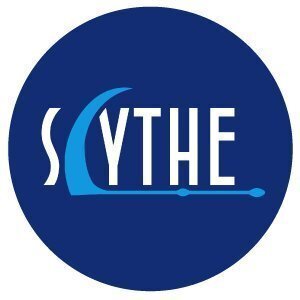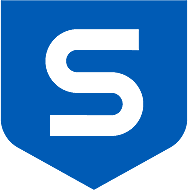Top Brokerage Trading Platforms Softwares
Brokerage Trading Platforms software serves as a crucial tool for traders to access and manage financial markets efficiently. These platforms offer a range of functionalities, including real-time market data, order execution, portfolio management, and analysis tools, helping users make informed investment decisions. Designed for individual investors and organizations, these tools aim to streamline... Read More
10 companies found
Picus Security
Product Description
In the world of digital security, keeping up with potential threats can be daunting. Picus Security makes this easier by offering a service that focuses on continuous security assessment. This software helps businesses understand how well their current security measures are working and where they might be vulnerable. By simulating real-world attacks, Picus Security provides practical insights into... Read More
Users
- • No Data
Industries
- • No Data
Market Segment
- • No Data
Product Description
SCYTHE is a software platform designed to help organizations improve their cybersecurity defenses through realistic, automated simulations of cyberattacks. Instead of guessing where vulnerabilities might exist, SCYTHE gives you a way to test your systems in a controlled, repeatable way. Imagine being able to simulate a cyberattack as if it were a drill, without the actual risk and damage. That's... Read More
Users
- • No Data
Industries
- • No Data
Market Segment
- • No Data
Product Description
AISOC is a software designed to make your business processes smoother and more efficient. It's a tool meant for companies that want to streamline their data and analytics in a user-friendly way. By gathering and organizing information, AISOC helps your team make better decisions without spending a lot of time on data entry or analysis. One of the main benefits of AISOC is its simplicity. No need ... Read More
Users
- • No Data
Industries
- • No Data
Market Segment
- • No Data
Product Description
XM Cyber offers a straightforward, yet powerful platform designed to help businesses understand and manage their cyber exposure risks. Imagine having a tool that continuously checks for potential weaknesses in your security and shows you how an attacker might exploit them. That's what XM Cyber does. It gives you a clear picture of your vulnerabilities and tells you which ones are the priorities so... Read More
Users
- • No Data
Industries
- • No Data
Market Segment
- • No Data
FourCore ATTACK
Product Description
FourCore ATTACK is a software solution designed to simplify and enhance the way businesses approach cybersecurity. It offers a streamlined platform for managing and mitigating vulnerabilities that hackers could exploit. Ideal for companies looking to strengthen their security posture, FourCore ATTACK helps you proactively identify and address weak spots in your IT infrastructure. With this tool, ... Read More
Users
- • No Data
Industries
- • No Data
Market Segment
- • No Data
Sophos PhishThreat
Product Description
PhishThreat by Sophos is a comprehensive solution aimed at helping businesses stay ahead of the curve in mitigating phishing attacks and improving cybersecurity awareness among employees. Designed for ease of use in the SaaS space, PhishThreat provides a range of customizable training modules that make it simple to educate your team on recognizing and responding to potential threats. Whether your ... Read More
Users
- • No Data
Industries
- • No Data
Market Segment
- • No Data
Product Description
Defendify All-In-One Cybersecurity® Solution offers a straightforward and practical approach to managing your business’s cybersecurity needs. Designed for small to mid-sized organizations, it simplifies the process of getting and staying secure in a digital world. This platform combines multiple cybersecurity tools and services into a single, easy-to-use package. Instead of juggling various softw... Read More
Users
- • No Data
Industries
- • No Data
Market Segment
- • No Data
Datto SaaS Defense
Product Description
In today's digital age, ensuring the security of your business's most critical information is more important than ever. Datto SaaS Defense is dedicated to providing that vital layer of protection for companies using cloud-based applications. Think of Datto SaaS Defense as a vigilant guard for your cloud data, especially for platforms like Microsoft 365 and Google Workspace. Its main job is to de... Read More
Users
- • No Data
Industries
- • No Data
Market Segment
- • No Data
Cymulate Platform
Product Description
Cymulate Platform is a straightforward, user-friendly tool designed to help businesses detect and manage security vulnerabilities in their digital systems. Imagine having a virtual assistant that constantly checks your organization’s defenses against cyber threats, showing you where potential weak spots are and offering guidance on how to fix them. That’s what Cymulate does. What stands out with ... Read More
Users
- • No Data
Industries
- • No Data
Market Segment
- • No Data
Product Description
In today's digital age, protecting your online assets is more important than ever. vPenTest is designed to make this complex task simpler for you. Our software provides businesses, large and small, with the tools needed to test and identify vulnerabilities in their digital infrastructure. No matter how tech-savvy you are, vPenTest offers an intuitive and user-friendly interface that lets you stay ... Read More
Users
- • No Data
Industries
- • No Data
Market Segment
- • No Data
What is Brokerage Trading Platforms software?
Brokerage Trading Platforms software is critical in today's financial markets, providing individuals and institutions with tools to engage in trading activities. These platforms serve as a digital interface between traders and various financial markets, including stock exchanges, commodities, futures, options, and foreign exchange (Forex) markets.
Trader Access and Execution
One of the primary functions of Brokerage Trading Platforms software is to offer access to market data and execute transactions. Traders can view real-time pricing information, monitor market fluctuations, and place orders quickly and efficiently. By providing detailed charts and technical analysis tools, these platforms enable traders to make informed decisions based on current market conditions. With a user-friendly interface, even individuals with limited trading experience can navigate the basics of market operations.
Types of Orders and Strategies
Brokerage Trading Platforms software supports various types of orders, such as market orders, limit orders, and stop-loss orders, catering to different trading strategies. The order execution process is designed to be seamless, minimizing latency to capitalize on potential market opportunities. Additionally, advanced platforms may offer algorithmic trading capabilities, where users can deploy automated trading strategies based on predefined criteria.
Risk Management and Analysis
Risk management is a crucial component of trading. Brokerage Trading Platforms software includes tools for assessing risk and monitoring trade performance. Features such as margin calculators, risk assessment tools, and portfolio analysis help traders manage their exposure to market volatility. Users can evaluate their trading history and performance metrics to refine their trading strategies over time.
Account Management and Reporting
Another essential aspect of Brokerage Trading Platforms software is account management. Traders can access information on their portfolios, including balances, positions, and transaction history. Platforms often provide insightful reports that detail account performance, helping users make data-driven decisions. These features support transparency and allow traders to easily track their investments.
Security and Compliance
Security and compliance are paramount in the financial industry. Brokerage Trading Platforms software includes robust security measures, such as encryption and two-factor authentication, to protect user data and prevent unauthorized access. Additionally, these platforms ensure compliance with regulations and standards in the financial sector, giving users confidence in their use.
Market Research and Education
Lastly, Brokerage Trading Platforms software frequently offers resources for market research and education, such as news feeds, market analyses, and training materials. By accessing these resources, traders can stay informed about market trends and better understand trading mechanics. Continuous learning is facilitated, enabling users to enhance their trading acumen.
In summary, Brokerage Trading Platforms software is a fundamental tool for accessing and navigating the complexities of financial markets. It facilitates efficient trade execution, supports various trading strategies, and offers essential tools for risk management, all while maintaining high standards of security and compliance.
How do Brokerage Trading Platforms Enhance Trading Efficiency?
Brokerage Trading Platforms software plays a crucial role in enhancing trading efficiency for both individual investors and institutional traders. With technological advancements, these platforms continue to evolve, offering features that streamline trading activities and provide tools necessary for making informed decisions quickly. Below are ways in which Brokerage Trading Platforms software contributes to improved trading efficiency.
Streamlined Execution Process
One of the primary ways Brokerage Trading Platforms enhance efficiency is through a streamlined execution process. These platforms enable traders to execute trades quickly and without the need for intermediaries. The ability to place orders directly through an electronic interface reduces the time between decision and execution, crucial for market timing and taking advantage of price fluctuations.
Real-Time Data and Analytics
Brokerage Trading Platforms software provides real-time data and analytics, a critical component for effective trading. Access to live market data ensures that traders can monitor price changes and market trends as they happen. Advanced analytics tools allow traders to assess patterns and indicators—vital for developing and adjusting trading strategies on the fly.
Risk Management Tools
Effective risk management is essential for successful trading. Brokerage Trading Platforms software offers a suite of risk management tools. These include stop-loss orders, take-profit orders, and automated trading limits, which help traders protect their investments and minimize potential losses. These tools contribute to trading efficiency by automating aspects of the decision-making process, ensuring that reactions to market changes can be instant and without manual intervention.
Customizable Interfaces and Alerts
Traders often have unique needs and preferences. Brokerage Trading Platforms software often features customizable interfaces that allow users to tailor dashboards and views according to their priorities. Additionally, custom alerts can be set up to notify traders of significant price movements or news events. This customization reduces cognitive load and ensures that traders have the relevant information presented in a way that enhances decision-making speed.
Integration With Financial News and Insights
Staying informed about global market developments is crucial for traders. Brokerage Trading Platforms software often integrates with financial news services, providing insights and commentary alongside trading capabilities. This integration ensures that traders have access to both data and interpretive content, enabling them to make decisions based on a comprehensive understanding of the market environment.
Automation and Algorithmic Trading
The capacity to deploy algorithms for executing trades allows users to take advantage of market opportunities without constant monitoring. Automation within Brokerage Trading Platforms software facilitates algorithmic trading, where pre-set rules govern trade executions. This functionality enhances efficiency by enabling rapid execution of complex trading strategies that would be impossible to manage manually.
Overall, the contributions of Brokerage Trading Platforms software to trading efficiency are substantial. By offering streamlined execution, real-time data, risk management tools, customizable approaches, integrated news services, and automation, these platforms empower traders to operate more effectively and respond to market dynamics with agility.
What features should you look for in Brokerage Trading Platforms software?
When selecting Brokerage Trading Platforms software, several features are essential to consider. These features help ensure the software meets your trading needs while offering an optimal user experience.
User-Friendly Interface
A user-friendly interface is crucial in Brokerage Trading Platforms software. An intuitive layout with customizable dashboards allows users to easily navigate and access tools without unnecessary complexity. Look for platforms that provide a seamless experience, accommodating both beginners and advanced traders.
Real-Time Data and Analytics
Access to real-time market data and analytics is vital. Brokerage Trading Platforms software should provide live streaming quotes, news feeds, and in-depth research tools. Insights into market trends and data-driven analysis enable traders to make informed decisions swiftly.
Order Types and Execution
Robust order types and execution options are fundamental. The software should support various order types, such as market, limit, stop, and trailing stop orders. Fast and reliable order execution ensures you can capitalize on market movements effectively.
Charting Tools
Comprehensive charting tools are a cornerstone of effective trading. Look for Brokerage Trading Platforms software that offers customizable charts, technical indicators, and drawing tools. The ability to analyze historical data and identify patterns can enhance trading strategies significantly.
Risk Management Features
Risk management is crucial in trading. Search for platforms that feature risk management tools, including stop-loss and take-profit levels. These features help control potential losses and secure profits, safeguarding your investment strategy.
Access to a Wide Range of Assets
A diversified asset pool is beneficial. Brokerage Trading Platforms software should offer access to various financial instruments, including stocks, forex, commodities, and cryptocurrencies. This variety allows for diversification, reducing risk across different assets.
Mobile and Multi-Device Access
In today's digital age, mobile accessibility is essential. Ensure the software provides a robust mobile application that mirrors the desktop experience. Multi-device access ensures you can monitor and manage trades on the go, without missing crucial market events.
Security Measures
Robust security features are non-negotiable. Brokerage Trading Platforms software must offer encryption, two-factor authentication, and secure data storage. Safeguarding personal data and financial transactions is paramount for user trust and compliance.
Research and Educational Resources
Educational and research resources can enhance your trading knowledge and skills. Platforms should offer webinars, tutorials, articles, and market analysis. These resources are particularly beneficial for new traders looking to understand market dynamics better.
Customer Support
Reliable customer support is vital for resolving issues swiftly. Evaluate the platform's available support channels like live chat, phone, and email. Responsive support ensures technical and trading-related queries are addressed promptly.
Customization and Integration
Customization options and system integration can enhance trading efficiency. Seek Brokerage Trading Platforms software that allows for customization of interface and tools according to trading preferences. Also, check for integration capabilities with other tools like trading bots or financial software.
By focusing on these essential features, you can select Brokerage Trading Platforms software that aligns with your trading requirements and supports your financial goals.
How secure are Brokerage Trading Platforms software?
When considering the security of Brokerage Trading Platforms software, multiple layers of protection come into play to safeguard users' personal and financial data. Security is a critical component, as these platforms manage sensitive information, including account details and transaction history.
Data Encryption
Brokerage Trading Platforms software generally implements robust encryption protocols. These protocols protect all data exchanges between a user's device and the platform’s servers. Encryption ensures that any intercepted data remains unreadable, reducing the risk of data breaches.
Secure Socket Layer (SSL) Technology
The use of SSL certificates is standard in Brokerage Trading Platforms software. SSL technology establishes a secure, encrypted connection, providing an additional layer of security. This helps in maintaining data integrity and confidentiality during the transfer of information online.
Two-Factor Authentication (2FA)
To enhance security, many Brokerage Trading Platforms software solutions offer two-factor authentication. 2FA requires users to verify their identity through an additional step, such as inputting a code received via SMS. This method protects against unauthorized access, even if login credentials are compromised.
Firewalls and Intrusion Detection Systems
Brokerage Trading Platforms software often leverages firewalls and intrusion detection systems. These systems monitor and filter incoming and outgoing network traffic, identifying and blocking potential threats. They act as a barrier against unauthorized access and cyber threats, ensuring the safety of the trading platform.
Regular Security Audits
Security audits are integral to maintaining the safety of Brokerage Trading Platforms software. Regular evaluations help identify vulnerabilities within the system. By addressing these weaknesses in a timely manner, the platforms can effectively mitigate potential security risks.
Identity Verification and User Access Controls
User identity verification is critical for maintaining a secure environment. Brokerage Trading Platforms software often requires identity documentation for account setup. Additionally, access controls ensure that only authorized users can access certain functionalities or sensitive information, thereby minimizing the risk of insider threats.
Compliance with Regulatory Standards
Adherence to regulatory standards is essential for Brokerage Trading Platforms software. Compliance with financial regulations ensures that these platforms operate under strict guidelines designed to protect users. Regulatory bodies may impose specific security requirements, which platforms must adhere to ensure data protection and privacy.
Secure API Integration
APIs are commonly used in Brokerage Trading Platforms software for extended functionalities, such as connecting to third-party applications or services. Ensuring secure API integration prevents unauthorized access and data leaks. Platform vendors often implement API security best practices, including authentication and authorization measures.
Continuous Security Updates
Frequent security updates are essential for maintaining the integrity of Brokerage Trading Platforms software. Continuous software patching addresses vulnerabilities and adapts to emerging security threats. Keeping the platform up-to-date ensures that it remains protected against new types of cyberattacks.
In summary, Brokerage Trading Platforms software incorporates a variety of security measures to protect users. From encryption to regular security audits, these solutions aim to provide a secure trading environment.
Can you customize settings on Brokerage Trading Platforms?
Overview
Brokerage Trading Platforms software is essential for individuals and institutions involved in trading securities. These platforms provide the necessary tools and interfaces to execute trades, analyze market data, and manage portfolios. A significant aspect of using Brokerage Trading Platforms software is the customization options they offer.
Customizing the User Experience
Customization is a critical factor for users as it allows traders to tailor the platform to their specific needs. Users often have the ability to modify their dashboards to display pertinent information. Customization can include arranging widgets or modules that show real-time data, historical trends, or news updates. By customizing these elements, traders can focus on their specific areas of interest without unnecessary distractions.
Setting Alerts and Notifications
Brokerage Trading Platforms software often includes customizable alert systems. Users can set notifications based on various criteria like price changes, trade executions, or news events. This feature helps traders stay informed about market movements that are relevant to their trading strategies. It also assists in managing risks by promptly notifying traders about critical thresholds being reached.
Technical Indicators and Charting Tools
Users can usually customize technical indicators and charting tools within Brokerage Trading Platforms. These tools are vital for technical analysis, a method many traders use to predict future price movements based on historical data. Users might adjust parameters such as moving averages or relative strength index (RSI) to better suit their trading style. Additionally, traders can often choose the time frames displayed on charts, influencing how they interpret market trends.
Order Types and Execution Settings
Brokerage Trading Platforms software may offer a range of order types, such as market orders, limit orders, or stop-loss orders, each customizable to some degree. Traders can set predefined conditions under which these orders are executed. For example, with stop-loss orders, users can specify the price point at which they want their position to be automatically sold. This level of control allows traders to manage their transactions efficiently while mitigating risks.
Language and Regional Preferences
Another customization aspect involves setting language and regional preferences. This feature ensures the platform is user-friendly and accessible to a global audience. Users can select their preferred language or set time zones and currency types that match their location or trading strategy.
Security Settings
Security is paramount in Brokerage Trading Platforms software. Users can customize security settings by enabling two-factor authentication (2FA), setting strong passwords, and configuring other security measures. These options ensure that traders can protect their accounts and personal data against potential breaches.
Conclusion
Customizing settings on Brokerage Trading Platforms software is a crucial functionality for users seeking an optimal trading experience. From personalizing dashboards and setting alerts to adjusting technical indicators and security settings, customization empowers traders to operate in a way that aligns with their individual trading goals and strategies.
How does Brokerage Trading Platforms software help in market analysis?
Comprehensive Data Access
Brokerage Trading Platforms software provides robust access to a wide spectrum of market data. This includes real-time price feeds, historical data, and various financial metrics. Traders utilize this information to perform technical and fundamental analysis. By accessing comprehensive data, users can identify market trends, measure asset valuations, and make predictions based on past performance.
Advanced Charting Tools
Charting tools within Brokerage Trading Platforms software assist in market analysis by visually representing data. These tools include candlestick charts, line graphs, and bar charts, which traders use to identify patterns and trends. Advanced features within these charts, such as Fibonacci retracement, moving averages, and Bollinger Bands, further aid in the technical analysis, helping traders to spot breakouts or reversals.
Technical Indicators
Technical indicators are embedded in Brokerage Trading Platforms software to refine market analysis. Indicators such as Relative Strength Index (RSI), Moving Average Convergence Divergence (MACD), and Average True Range (ATR) offer insights into market momentum, volatility, and potential price movements. This quantitative analysis supports traders in making informed decisions on entry and exit points in their trades.
Fundamental Analysis Tools
For users focusing on intrinsic asset value, Brokerage Trading Platforms software offers fundamental analysis tools. These include financial statement analyses, news feeds, and economic calendar events. Such tools help in evaluating the financial health of companies, assessing the impact of economic events, and understanding market sentiments, thus enriching the decision-making process.
Algorithmic Trading Support
Some Brokerage Trading Platforms software comes equipped with capabilities for algorithmic trading, providing automated market analysis. By programming specific criteria, algorithms can scan the markets for opportunities, based on pre-determined parameters. This allows for rapid analysis of large datasets, identifying opportunities that meet the user's trading strategy more efficiently than manual methods.
Risk Management Features
Effective market analysis also involves understanding and managing risk. Brokerage Trading Platforms software offers risk management tools that help in this process. Features such as stop-loss orders, portfolio diversification tools, and risk assessment metrics enable traders to analyze and mitigate possible risks. This analysis helps maintain a strategic balance in traders' portfolios, minimizing potential losses.
Educational Resources
Brokerage Trading Platforms software often includes educational resources to enhance users' analytical skills. Tutorials, webinars, and articles provide insights into different market analysis techniques. By improving their knowledge, users can leverage the software tools more effectively, optimizing their analysis through a better understanding of the financial markets.
Customizable Interface
To facilitate personalized market analysis, Brokerage Trading Platforms software typically allows users to customize their interfaces. Users can tailor dashboards to display only relevant data and tools, streamlining their workflow. This customization enhances efficiency in market analysis by aligning the platform's capabilities with individual trading preferences and strategies.
By integrating these features, Brokerage Trading Platforms software supports traders in conducting thorough market analysis, improving their ability to make informed trading decisions.
What are the benefits of using Brokerage Trading Platforms software?
Using Brokerage Trading Platforms software offers numerous advantages to traders and investors. These platforms act as a bridge between users and financial markets, simplifying and enhancing the trading experience. Below, we explore the key benefits of utilizing Brokerage Trading Platforms software.
Accessibility and Convenience
Brokerage Trading Platforms software provides access to various financial markets through an online interface. This accessibility allows traders to execute trades from anywhere with an internet connection, offering flexibility and convenience. Users can manage investments, execute trades, and monitor market movements without the need for physical presence on trading floors or reliance on brokers.
Real-Time Market Data
Another benefit is the provision of real-time market data. Timely access to financial market updates and trends helps traders make informed decisions. Brokerage Trading Platforms software displays live data streams, including stock prices, market indices, and trading volumes. Having up-to-date information minimizes the time lag between market changes and trading actions, enabling users to capitalize on opportunities more effectively.
Lower Costs and Fees
Online Brokerage Trading Platforms software often comes with lower fees compared to traditional brokerage services. Reduced operational costs for brokers translate into lower commissions and fees for users. This cost-efficiency attracts both new and experienced traders looking to optimize their investment strategies and maximize returns.
Tools and Resources
Brokerage Trading Platforms software is equipped with analytical tools and educational resources. These platforms offer charting tools, technical indicators, and historical data analyses, enabling traders to evaluate market performance. Educational materials, tutorials, and webinars help users enhance their understanding of trading strategies and market dynamics. This resource access empowers traders, fostering skill development and strategic planning.
Ease of Use
The user interface of Brokerage Trading Platforms software is designed for ease of operation, catering to individuals with varying levels of trading experience. Intuitive navigation, customizable dashboards, and clear data presentation make them user-friendly. This simplicity allows users of all proficiency levels to efficiently manage trades and track investment portfolios.
Automated Trading
Many platforms offer automated trading, allowing users to set predefined criteria for executing trades. Automated trading minimizes emotional decision-making, ensuring trades follow strategic thresholds. This functionality is advantageous for traders looking to capitalize on specific market conditions without constant monitoring.
Enhanced Security
Brokerage Trading Platforms software utilizes robust security measures to protect user data and transactions. Encryption protocols, multi-factor authentication, and regular security audits ensure a safe trading environment. This focus on security builds trust among users, encouraging adoption and long-term engagement.
Wide Range of Asset Classes
These platforms provide access to a diverse range of asset classes, including stocks, bonds, futures, options, and cryptocurrencies. Traders can diversify portfolios by exploring various financial instruments within a single platform. Portfolio diversification helps in managing risk and potentially enhances returns.
By leveraging the benefits of Brokerage Trading Platforms software, traders can optimize their trading experience, access necessary resources, and engage with global financial markets with ease and confidence.









